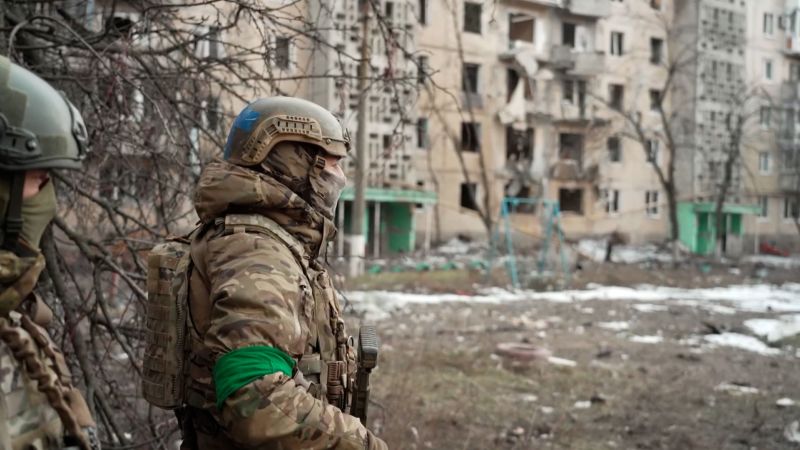
Vuhledar, Ukraine
CNN
—
Under a blanket of stars, the only sound in the air is the deep hum of a pick-up truck, its headlights off. Fumes chug into frigid air from the exhaust. Only the taillights reveal the vehicle’s outline; the remotest sliver of light could spell disaster this close to the frontline.
Overhead, Russian drones stalk the skies, hunting for any sign of life.
Thursday’s pre-dawn mission is simple: get to one of the most beleaguered and battered parts of eastern Ukraine’s 1,500 mile-frontline, the lynchpin town of Vuhledar, which Russian forces have sought to seize for months.
“Ready!” barks an American voice. A British soldier, balaclava covering his face, perhaps in anticipation of a minus 5 degrees Celsius (23 degrees Fahrenheit) journey on the back of the truck, replies “yep,” and leaps onto the vehicle.
On the eve of the one-year anniversary of Russia’s war in Ukraine, CNN was given exclusive access for two days with Ukraine’s International Legion – a band of foreign fighters who have bolstered the Ukrainian armed forces in the fight for their homeland.
One of them hails from North Carolina, via New York. The American voice belongs to Jason Mann, who goes by ‘Doc.’ A bearded, six-foot former United States Marine with tours in Afghanistan and Iraq under his belt, Mann leads a unit called ‘Phalanx.’
Recent arrivals to his unit include two Canadians and a Brit, who go by calls signs like ‘Scrappy’ and ‘Terminator’ (the latter of whom got his name after taking a brick to the eye on a mission, leaving it bloodshot).
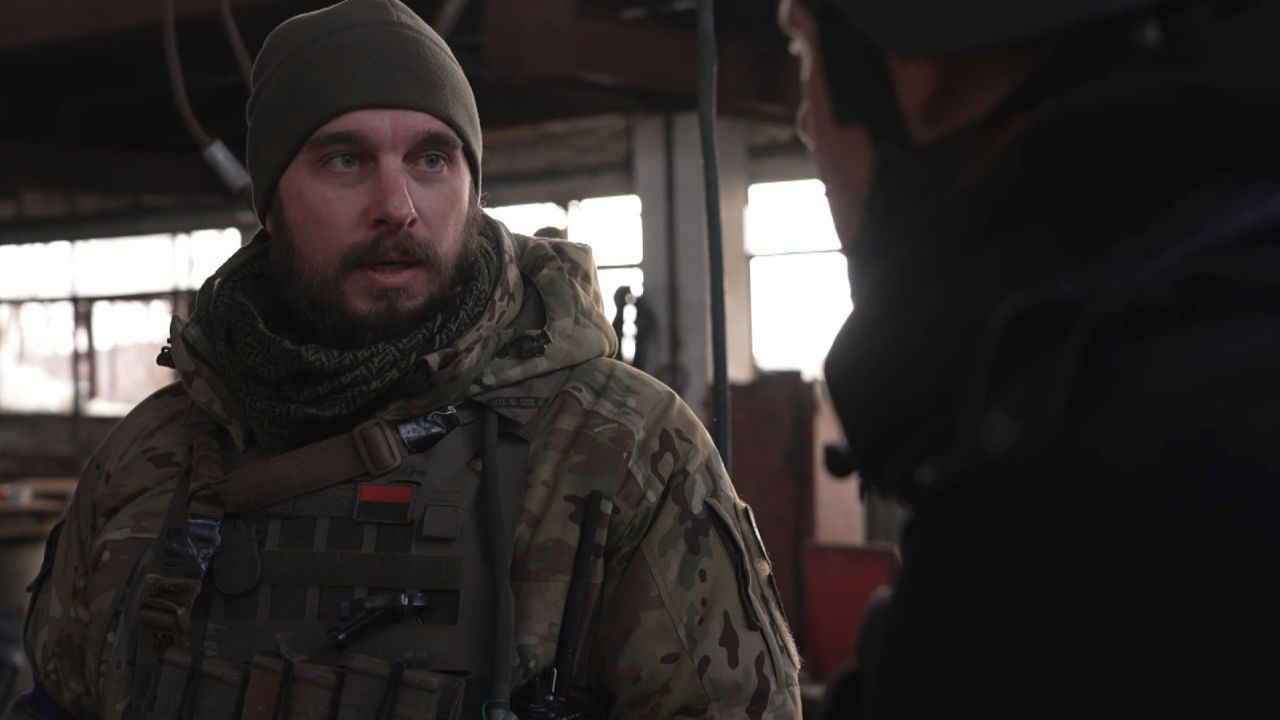
The aim of this early morning mission into Vuhledar is to familiarize ‘Scrappy’ — newly arrived from the UK a matter of weeks ago — with the terrain in this strategically critical town, known as the “gift of coal.”
“A lot of activity is going to be happening (in Vuhledar) over the next week,” predicts Mann. “We need to get him a little bit familiar with the area just in case we run out fast.”
Moscow has piled ammunition and troops into capturing Vuhledar in recent months. It has reduced the city to a shell of itself. Ferocious fighting has left the town, once of 15,000 people, largely void of any life.
A Russian victory here would help it keep Donetsk connected with Russian-occupied Crimea and allow the Russians to begin a northern “hook” as part of their anticipated spring offensive.
But Russian troops have suffered painful and bloody failures around Vuhledar, causing a near mutiny among troops in November. Drone video from Ukrainian units stationed around the town have shown Russian tanks and armored personnel carriers rolling over mines, dumping their troops and then running them over, as Ukrainian artillery targets them.
Now Mann and his unit expect a renewed Russian effort to take the city and finally declare victory here as the war’s February 24 anniversary draws closer.
The previous days mud has turned rock hard, and the pick-up rattles over it. Speed is essential to accessing Vuhledar, as the convoy crosses huge, exposed fields. Small leafless tree lines offer scant protection from Russian artillery.
On arriving to the tiny strategic town, it becomes clear that the months of fighting have left an apocalyptic level of destruction. Tall Soviet apartment blocks offer some cover from the near constant Russian shelling.
But at this early hour, the city is eerily calm. “This isn’t an early morning war,” Mann quips.
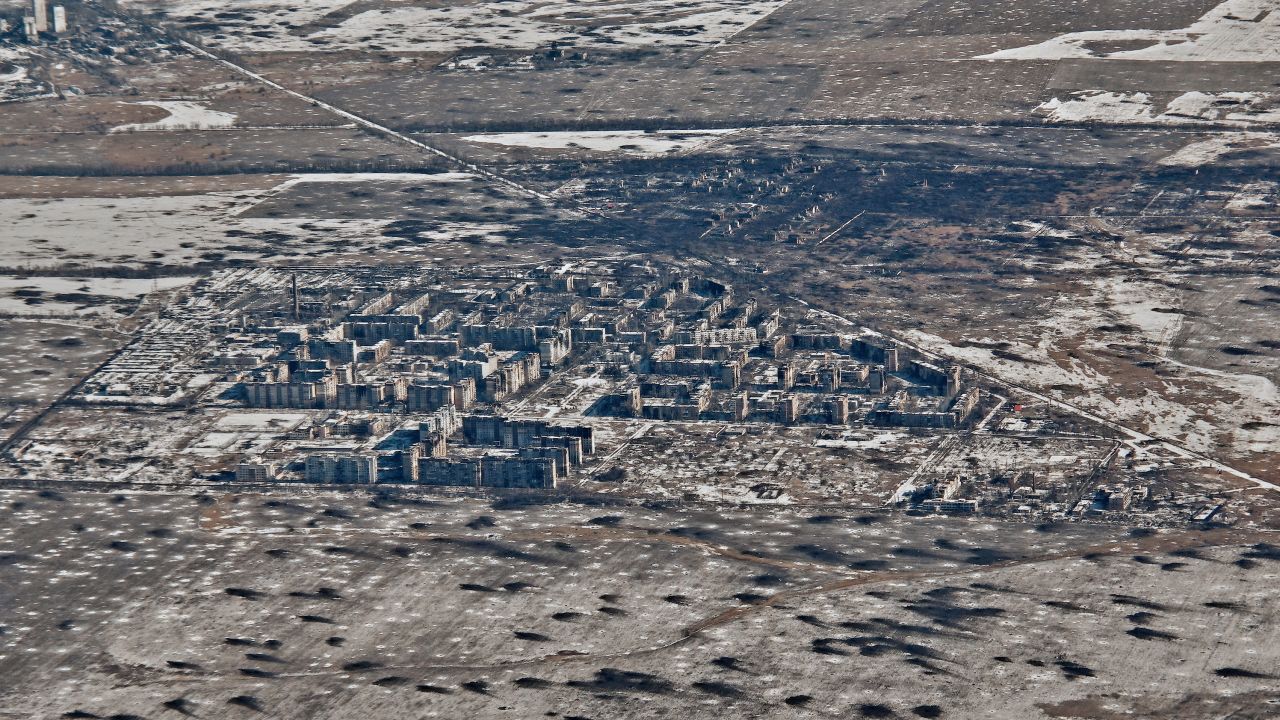
The previous day, a near constant barrage of artillery had hammered the city.
To venture safely further into Vuhledar, you pass through the apartment buildings.
We step through a squeaky swinging door, into almost ghostly silent courtyard. A rust swing set hangs limp, every building show the scars of a pounding. Windows are blown out, chunks of walls are missing, bricks and debris litter the ground, pock-marked with craters.
“Now you can see why I don’t like being on this side,” Mann says.
A couple are wandering the streets with shopping bags. The appearance of life seemed incongruous to the surrounding. To our guides though, it was suspicious.
The risk of shelling grows as the sun rises; it looks like a beautiful day – perfect for artillery, and time for us to leave.
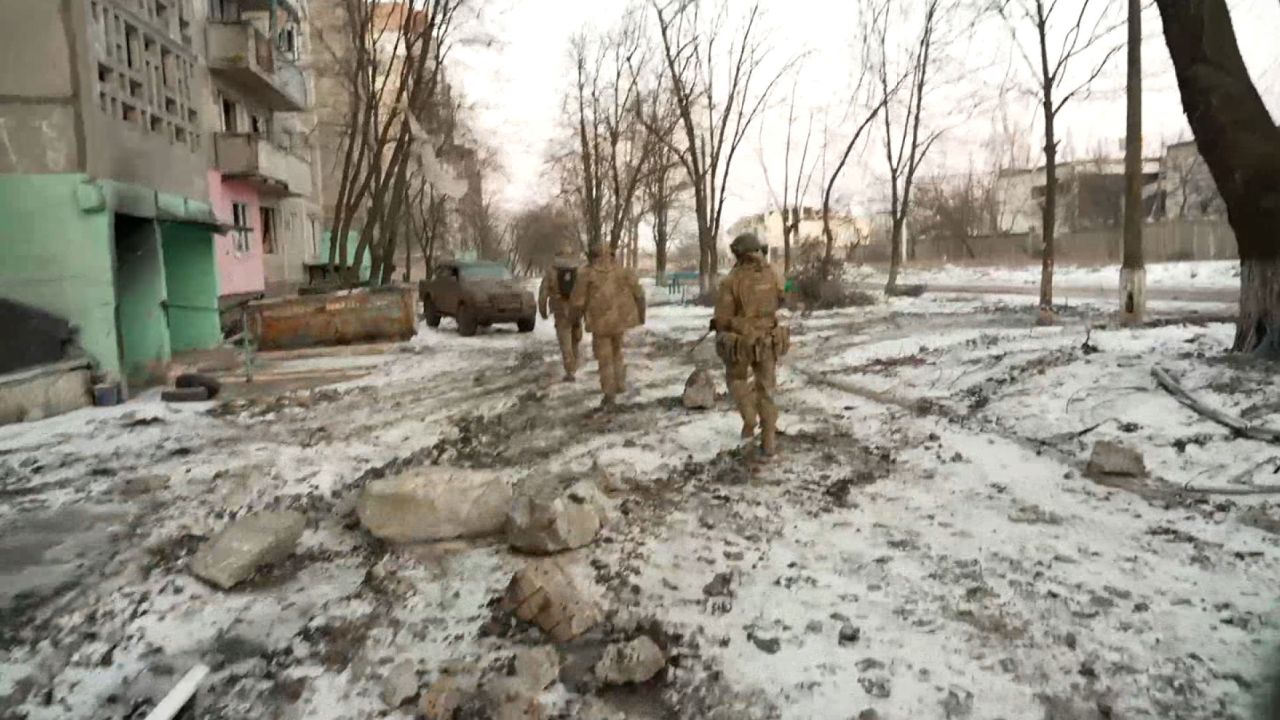
Back in a small village a small distance back from Vulhedar, a family house has been transformed into a military billet and small arsenal. Towns like these have sprung up across Ukraine, tiny military eco-systems.
Roving battery units fire vibrating shells at regular intervals across the village towards Russian positions without warning. A tiny litter of newly born puppies barely flinch.
Mann says his experience in Iraq and Afghanistan hardly prepared him for the kind of warfare seen in Ukraine.
“You know, fighting in a trench that’s not something that someone’s done in a long time. Like even World War Two is not really fought in trenches to this degree. Artillery is something we didn’t have to deal with in Iraq and Afghanistan apart from just a random rocket or grenade coming in. And that’s something you can’t fight against. You just have to hunker down and get lucky.”
While the exact number of foreign fighters in Ukraine is unclear and has fluctuated since the start of the war, Mann estimates that the current figure is in the low thousands.
He has seen most of the war. Mann arrived in early March 2022, and shows no sign of losing his commitment to the Ukrainian war effort.
“I’m 100% solid. There’s nothing wrong with my resolve, there’s nothing wrong with how I feel about the situation, I’m definitely in the right place,” Mann told CNN, from a bunker-come-arsenal underneath the unit’s sleeping quarters.
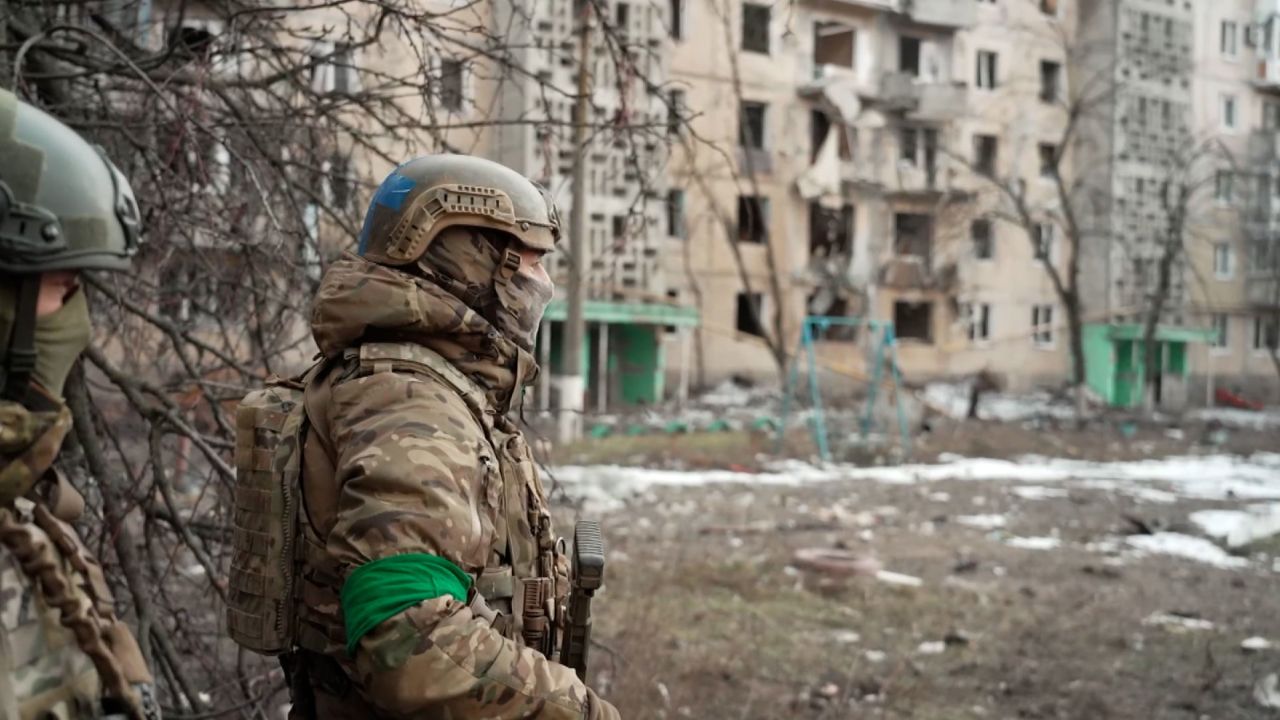
He is a Columbia university alumnus and former software engineer at Google. Before that chapter of his life, he was a Marine, serving tours in Afghanistan and Iraq. The world of big tech was there for the taking, but Mann says he felt called to fight for freedom.
“This is redefining the global order as we speak. This is democracy versus autocracy. Do we want to let autocracy control more people’s lives in the future or prevent it from doing that ever again?” he says.
The Legion is attached to the Ukrainian 72nd brigade and work regularly with Ukrainian regulars, with the help of interpreters. Just days before CNN’s arrival, the Legion lost a Ukrainian reconnaissance man on a mission. He was caught up in a mortar attack, and buried on Friday.
Mann’s boss, a New Zealander who goes by the name ‘Turtle,’ says their fallen comrade’s courage needed no translation.
“He was such a nice guy. But didn’t speak a lick of English. Most of the time, he did his talking via Google Translate. But there’s a few really good things I remember about him. He was also very good with wife and his kids, always talking to them every night,” the New Zealander says.
“There were a lot of times we would go out and fight in the trenches, but no matter how scared he was, he never said no,” he says.
Time travel or not, death lurks at every corner in war, and for this unit, this isn’t their war; their families are safe thousands of miles away, and they could choose to rip up their rolling Ukrainian army contracts and go home at anytime.
But the men we meet are committed to Ukraine’s fight, none more so than Mann.
He sees his decision to join up as a moral imperative — he says that the start of Russia’s invasion on February 24 was just “one of those moments in your life when you don’t really have a choice.”
Asked if he had any regrets – his curt reply had a hint of the assured former Marine.
“No regrets.”
